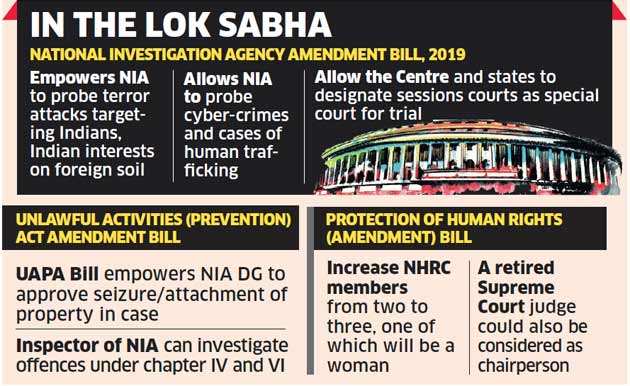Note4Students
From UPSC perspective, the following things are important :
Prelims level: UAPA
Mains level: anti-terror law

Central idea
The Jammu and Kashmir High Court’s November 17, 2023 judgment in journalist Fahad Shah’s case questions the broad interpretation of terrorism under UAPA, rejecting its use for defamation. It emphasizes judicial scrutiny in upholding personal liberty, challenging Section 43-D(5), and calls for legal reforms and accountability, urging a just way forward.
Key Highlights:
- Court’s Intervention: The Jammu and Kashmir High Court’s November 17, 2023 judgment intervened in journalist Fahad Shah’s case, granting him bail and partially setting aside charges under UAPA and FCRA.
- Call for Circumspection: The court emphasized the imperative for circumspection in enforcing anti-terror laws, particularly considering their impact on personal liberty.
- Defamation vs. Terrorism: Rejecting the government’s argument, the court challenged the notion that publishing an article harming India’s reputation constituted an act of terrorism.
Key Challenges:
- Vague Terrorism Offenses: The vague text of terrorism offenses under UAPA allows arrests in situations disconnected from actual incidents of violence, contributing to misuse.
- Section 43-D(5) Dilemma: The provision preventing bail if accusations are ‘prima facie true’ poses challenges to personal liberty, raising concerns about procedural fairness.
Key Terms and Phrases:
- UAPA: Unlawful Activities (Prevention) Act, the primary anti-terror statute in India.
- FCRA: Foreign Contribution (Regulation) Act, governing foreign funding.
- Section 43-D(5): UAPA provision restricting bail based on the ‘prima facie true’ criterion.
- Clear and Present Danger: Legal test invoked to restrict arrests based on a perceived immediate threat.
Key Quotes:
- “To treat allegations of defaming the country as terrorism seemed like a bridge just too far to cross.”
- “Provisions such as Section 43-D(5) were meant to prevent the easy release of persons such as the imaginary bomber.”
- “Both the law enforcement agency and the court must apply their mind to ensure that only in cases where a ‘clear and present danger’ is evinced are persons taken into custody.”
Key Statements:
- Judicial Emphasis: The judgment underscores the need for greater circumspection in enforcing anti-terror laws, especially concerning personal liberty.
- Defamation Clarification: Defamation of the country was deemed not punishable under UAPA, challenging the expansive interpretation of terrorism.
Critical Analysis:
- Judicial Accountability: While not revolutionary, the decision highlights the importance of accountability in state actions, particularly in the context of oppressive laws.
- Compensation Consideration: The legal regime needs to address compensations for wrongful arrest and detention, ensuring accountability and justice.
Way Forward:
- Legal Reforms: The legal system should consider reforms addressing compensations for wrongful arrests and enhancing state accountability.
- Upholding Constitutional Principles: Courts must continue upholding constitutional principles, ensuring a commitment to accountability in state actions.
Get an IAS/IPS ranker as your 1: 1 personal mentor for UPSC 2024
